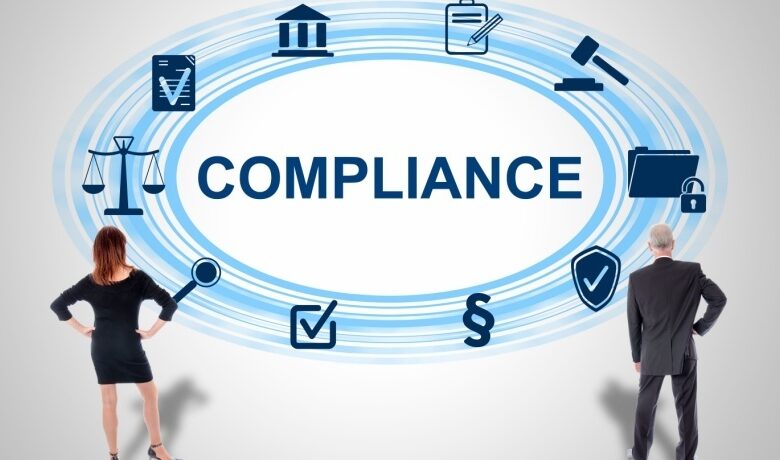Navigating Compliance: History And Contemporary Imperatives

The History And The Need For Compliance
Compliance, a concept deeply embedded in the fabric of business operations, has a rich historical tapestry woven through the annals of commerce. Its evolution is a testament to the ever-changing landscape of regulatory frameworks and the imperative for businesses to adapt. From ancient times to the digital age, adherence to rules, laws, and ethical standards has been paramount. In this article, we unravel the historical journey of compliance, underscore its contemporary significance, and illuminate the pivotal role compliance management systems play in modern-day business operations.
The History Of Compliance
The roots of compliance can be traced back to ancient civilizations, where codes of conduct and laws governed societal norms and trade practices. In ancient Mesopotamia, the code of Hammurabi, dating back to 1754 BCE, delineated legal principles regulating commerce and social conduct. Similarly, in ancient China, the legalist philosophy advocated strict adherence to laws and regulations to maintain order and stability. Throughout history, civilizations have recognized the importance of compliance in fostering trust, resolving disputes, and ensuring equitable transactions.
Fast-forward to the modern era, and global trade and commerce proliferation have necessitated a complex web of regulatory frameworks. The Industrial Revolution of the eighteenth and nineteenth centuries brought about unprecedented economic growth and underscored the need for regulations addressing labor rights, environmental concerns, and consumer protection. Establishing regulatory bodies such as the Factory Acts in Britain and the Food and Drug Administration (FDA) in the United States marked pivotal milestones in regulatory oversight.
In the twentieth century, we witnessed a paradigm shift in compliance with the emergence of international standards and agreements. Establishing organizations like the International Organization for Standardization (ISO) and the World Trade Organization (WTO) ushered in an era of harmonization and standardization of regulations across borders. In the aftermath of financial scandals like Enron and WorldCom, the enactment of stringent regulatory measures like the Sarbanes-Oxley Act and the Basel Accords underscored the imperative for corporate governance and accountability.
In the digital age, the compliance landscape has undergone seismic shifts propelled by technological advancements and global interconnectedness. The exponential growth of data and cyber threats has heightened the importance of data protection regulations such as the General Data Protection Regulation (GDPR) in Europe and the California Consumer Privacy Act (CCPA) in the United States. Moreover, the rise of environmental concerns has spurred the enactment of sustainability regulations to mitigate carbon emissions and promote corporate social responsibility.
Navigating Compliance Using Compliance Management Systems
Staying compliant is not merely a legal obligation but a strategic imperative for businesses seeking to safeguard their reputation, mitigate risks, and foster stakeholder trust. Noncompliance can lead to many consequences, ranging from hefty fines and legal sanctions to reputational damage and loss of market share. Moreover, in an era of heightened public scrutiny and social media amplification, the repercussions of noncompliance can reverberate across global markets, tarnishing the brand image and eroding consumer confidence.
To navigate the labyrinth of regulatory complexities, businesses increasingly turn to compliance management systems (CMS) as indispensable tools for ensuring adherence to regulations and streamlining compliance processes. A robust CMS provides a comprehensive framework for risk assessment, policy management, training, and monitoring of compliance activities. By centralizing compliance data and automating workflows, the CMS empowers businesses to proactively identify risks, implement corrective actions, and demonstrate regulatory compliance to stakeholders.
A CMS’s efficacy is central to its ability to adapt to the dynamic regulatory landscape through continuous monitoring and updates. With regulatory requirements evolving rapidly, businesses need agile CMSs equipped with advanced analytics and reporting capabilities to stay abreast of regulatory changes and ensure compliance across jurisdictions. Moreover, integrating Artificial Intelligence (AI) and Machine Learning (ML) algorithms into the CMS enables predictive analytics and anomaly detection, enhancing the proactive identification of compliance risks.
Furthermore, a CMS facilitates collaboration and communication across departments, fostering a culture of compliance throughout the organization. A CMS empowers stakeholders to make informed decisions and proactively mitigate compliance risks by providing real-time visibility into compliance metrics and performance indicators. Moreover, by promoting transparency and accountability, a CMS strengthens internal controls and enhances corporate governance, safeguarding against fraud and misconduct.
Navigating Compliance Training With eLearning
Staying compliant with policies is a nonnegotiable aspect of modern business operations, yet ensuring consistent adherence across an organization can often be challenging. This is where eLearning emerges as a powerful ally in simplifying and enhancing compliance efforts.
Firstly, eLearning provides a scalable and cost-effective solution for delivering comprehensive training on policies and procedures. Traditional training methods, such as in-person seminars or printed manuals, can be time-consuming and costly, especially for large organizations with dispersed teams. eLearning allows businesses to deliver consistent training content to employees regardless of location, ensuring that everyone receives the same information and understands compliance requirements.
Moreover, eLearning offers flexibility in training delivery, allowing employees to access learning materials conveniently. With eLearning modules accessible online or through mobile devices, employees can undergo training at their own pace and fit it into their busy schedules. This flexibility enhances learning retention and minimizes disruptions to daily operations, ensuring compliance training does not impede productivity.
eLearning facilitates interactive and engaging learning experiences, which has proven more effective in promoting knowledge retention. eLearning modules can capture learners’ attention and make complex compliance concepts more digestible through multimedia elements such as videos, animations, quizzes, and simulations. Interactive features like scenario-based simulations allow employees to apply their knowledge in realistic situations, enhancing their understanding of how to apply policies in their day-to-day roles.
eLearning platforms often include built-in tracking and reporting functionalities, allowing administrators to monitor learners’ progress and compliance training completion rates in real time. This enables proactive intervention and follow-up with employees who may require additional support or reinforcement of compliance concepts.
eLearning offers a streamlined and efficient approach to ensuring compliance with organization policies and regulations. By leveraging the power of technology to deliver engaging, flexible, and scalable training solutions, businesses can foster a culture of compliance and mitigate risks associated with noncompliance.
Conclusion
In conclusion, the history of compliance is a testament to its enduring relevance and evolution in response to changing societal, economic, and technological dynamics. In today’s interconnected world, staying compliant is a legal obligation and a strategic imperative for businesses seeking to thrive in a competitive landscape. Compliance management systems are indispensable tools for navigating the complexities of regulatory frameworks, mitigating risks, and fostering a culture of compliance. By embracing innovative technologies and best practices, businesses can become better at navigating compliance and journey toward sustainable growth and resilience in an ever-changing regulatory landscape.
Editor’s Note: Check out our directory to find, choose, and compare eLearning Industry’s Top eLearning Content Providers.

Real Fruit eLearning
Cost-effective, Bespoke eLearning. Real Fruit eLearning specialises in creating engaging and interactive digital learning experiences tailored to your needs.
Source link



